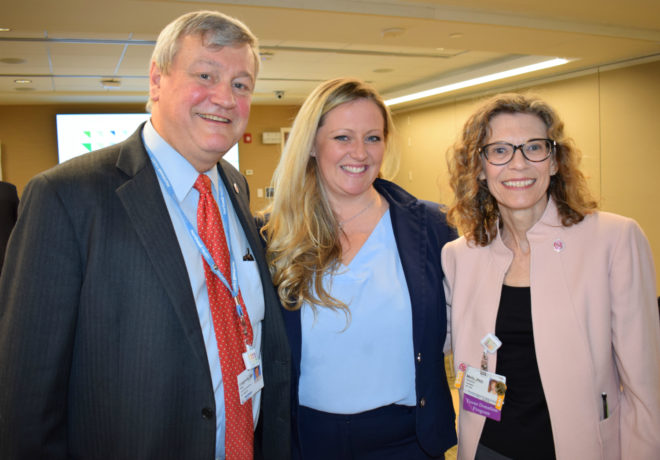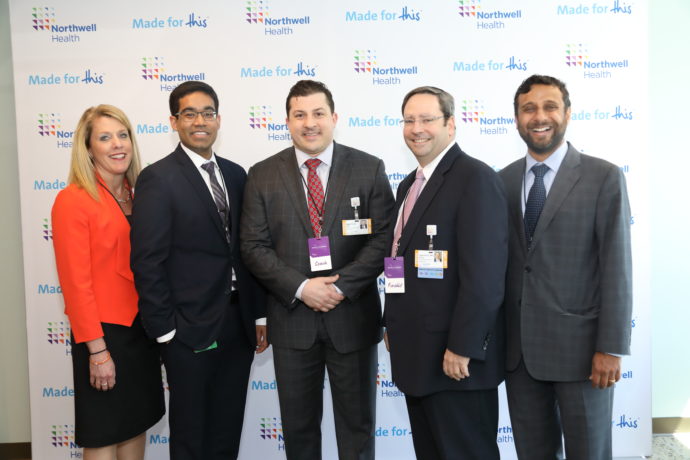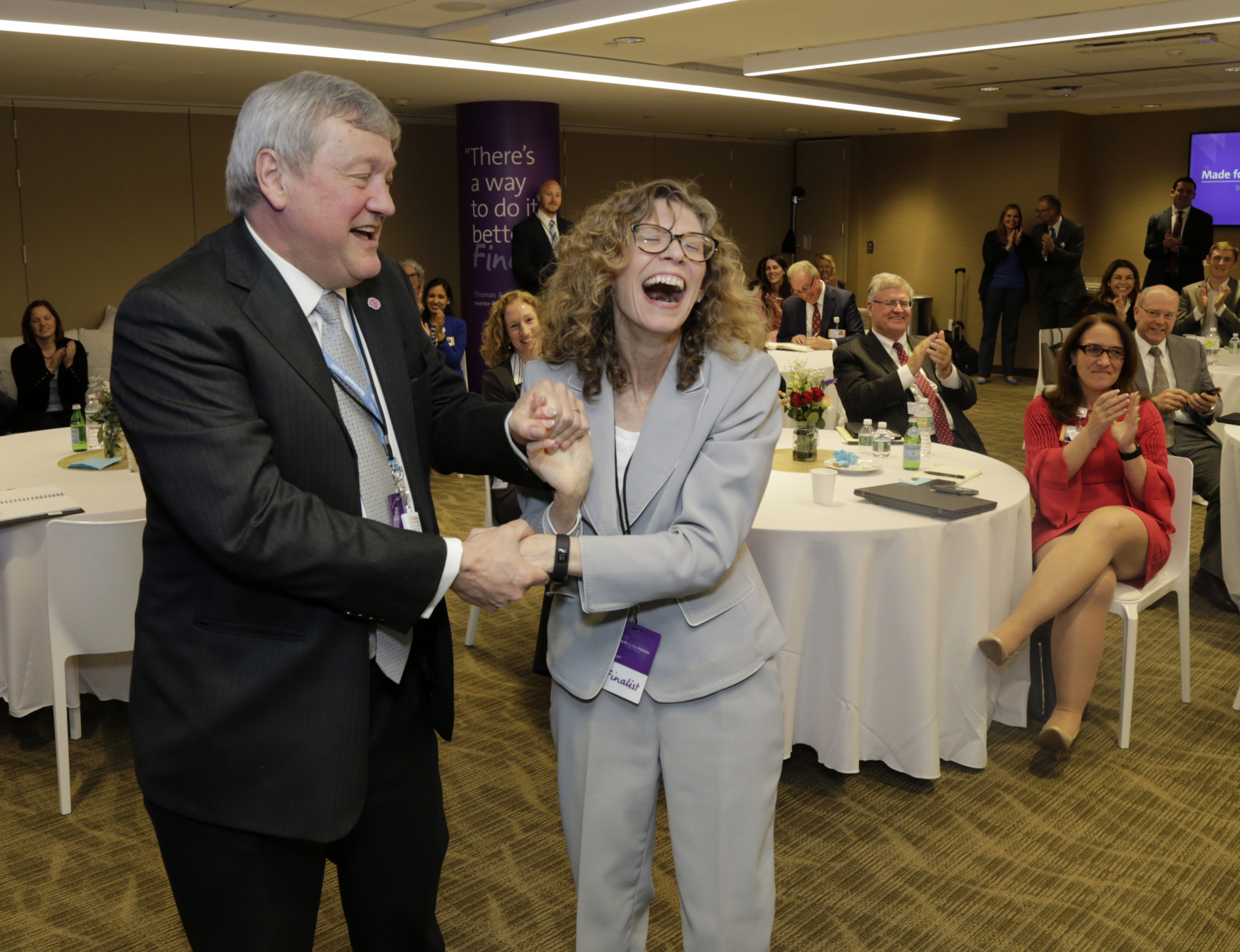Northwell Health has made a practice of using its employees to generate ideas and innovations that could possibly improve the operations of its hospitals, clinics and research centers and rewarding their efforts with project funding.
Two teams were chosen from seven finalists and 121 submissions for Northwell’s Made for Big Ideas showcase on May 8.
The winning study, “Early Diagnosis of Endometriosis Based on Analysis of Menstrual Effluent” by Feinstein Institute for Medical Research’s Dr. Peter Gregersen and Christine Metz, was awarded $500,000 and the runner-up, “EMRBot” by Northwell’s Chief Innovation Architect Dr. Vishwanath Anantraman and Chief Medical Information Officer Dr. Michael Oppenheim also won $500,000.
CEO Michael Dowling compared the project to the ABC show “Shark Tank,” with employees pitching ideas to a committee and defending the need for their innovation and explaining how it could improve the Northwell system.
“Northwell Health is unbelievably innovative with an unparalleled, forward-thinking culture that touches all areas of our organization,” Dowling said. “Other organizations fashion themselves as innovative, but we are unique in providing employees the channels to bring their ideas to life.”

The endometriosis study focuses on potentially non-invasive ways to test for and treat the painful and complex condition, which can lead to infertility that affects about 176 million women worldwide. The study could lead to an earlier diagnosis of the relatively unstudied disease.
Gregersen said internationally about three or four papers have been published that focus on menstrual effluent, or menstrual blood, and none of them focused on endometriosis.
“What we found was a striking difference between the biology of the cells in menstrual effluent, and we think this is going to rapidly lead to, at a minimum, a rapid diagnostic,” Gregersen said.
Jennifer Schultz of Huntington had multiple surgeries over a three-year span, ultimately losing an ovary, before she was diagnosed with endometriosis.
“Because it’s invasive, many women tend to delay having this done,” Metz said. “In addition, the condition has a lot of non-specific symptoms of pelvic pain — pain during sexual intercourse, pain going to the bathroom, pain with menstruation — that many women get misdiagnosed and hence that’s why there is this seven to eight year delay.
“We believe this menstrual blood will tell us a lot about this disease so that we can not only develop a new diagnostic for endometriosis but may also learn more about this debilitating disease so better treatments can be developed.”
The ongoing study Research Outsmarts Endometriosis, or ROSE, is open to women with or without endometriosis. For more information, visit feinsteininstitute.org/rose-research-outsmarts-endometriosis or call (516) 562-ROSE.

The second place idea focuses on the need for electronic medical records but hopes to reduce the time doctors and nurses spend both inputting new information and retrieving past information for a patient.
Oppenheim said about 50 percent of a physician’s day is spent on a computer, eating away at time that could be spent for personal interactions with patients.
EMRBot would allow physicians and nurses to interact with electronic medical records with their voice as well as use natural language text messages and an adaptive user interface with chatbots.
“EMRBot will completely revolutionize how clinicians interact with patient data and will restore the human ‘face-to-face’ interaction that electronic health records have slowly eroded,” Anantraman said.
Two additional teams received $100,000 and the remaining three finalists will work with internal resources at Northwell over the next year to advance their ideas and potentially qualify as a finalist for next year’s competition.



